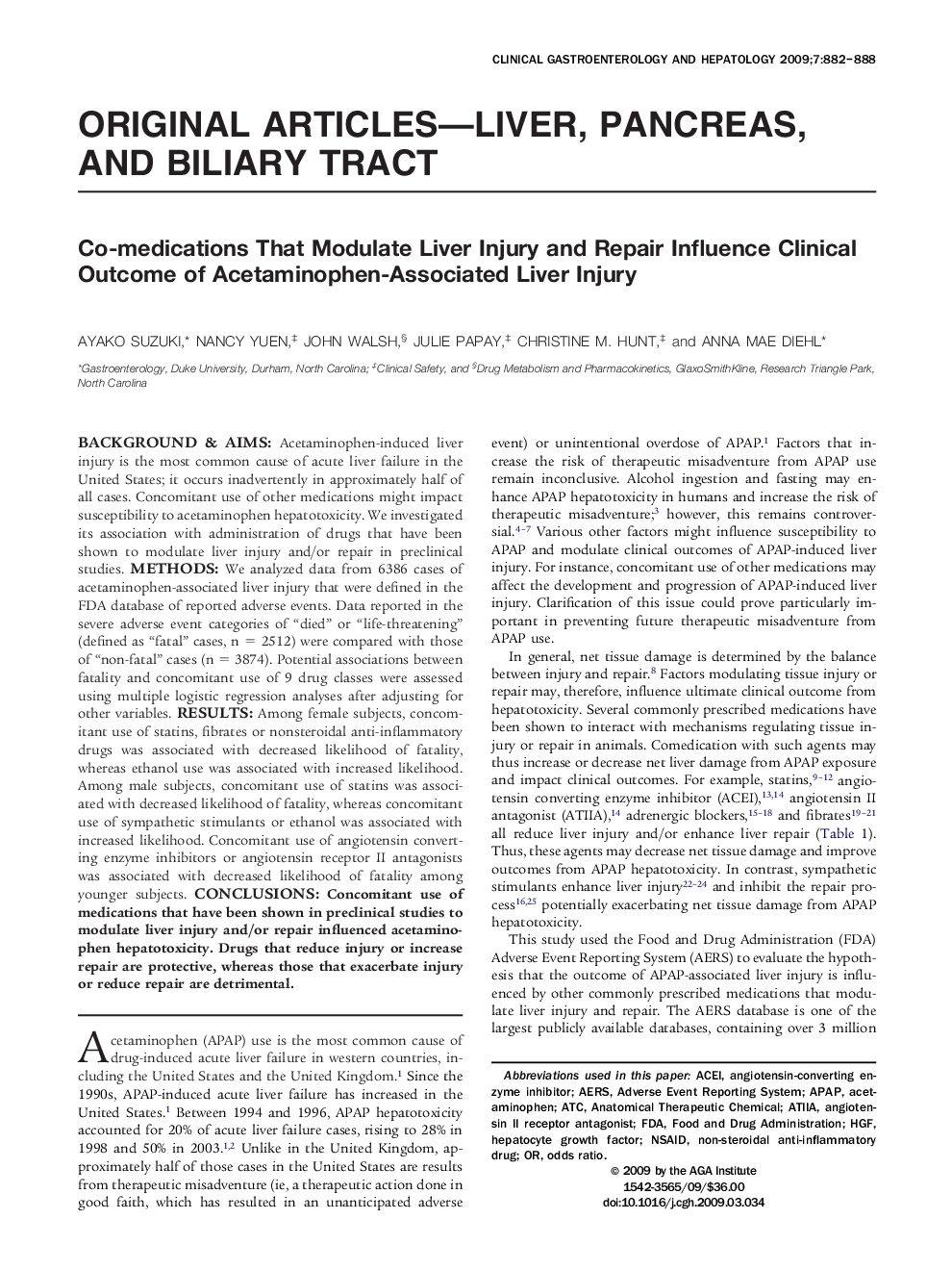| Article ID | Journal | Published Year | Pages | File Type |
|---|---|---|---|---|
| 3284422 | Clinical Gastroenterology and Hepatology | 2009 | 7 Pages |
Background & AimsAcetaminophen-induced liver injury is the most common cause of acute liver failure in the United States; it occurs inadvertently in approximately half of all cases. Concomitant use of other medications might impact susceptibility to acetaminophen hepatotoxicity. We investigated its association with administration of drugs that have been shown to modulate liver injury and/or repair in preclinical studies.MethodsWe analyzed data from 6386 cases of acetaminophen-associated liver injury that were defined in the FDA database of reported adverse events. Data reported in the severe adverse event categories of “died” or “life-threatening” (defined as “fatal” cases, n = 2512) were compared with those of “non-fatal” cases (n = 3874). Potential associations between fatality and concomitant use of 9 drug classes were assessed using multiple logistic regression analyses after adjusting for other variables.ResultsAmong female subjects, concomitant use of statins, fibrates or nonsteroidal anti-inflammatory drugs was associated with decreased likelihood of fatality, whereas ethanol use was associated with increased likelihood. Among male subjects, concomitant use of statins was associated with decreased likelihood of fatality, whereas concomitant use of sympathetic stimulants or ethanol was associated with increased likelihood. Concomitant use of angiotensin converting enzyme inhibitors or angiotensin receptor II antagonists was associated with decreased likelihood of fatality among younger subjects.ConclusionsConcomitant use of medications that have been shown in preclinical studies to modulate liver injury and/or repair influenced acetaminophen hepatotoxicity. Drugs that reduce injury or increase repair are protective, whereas those that exacerbate injury or reduce repair are detrimental.
